Image
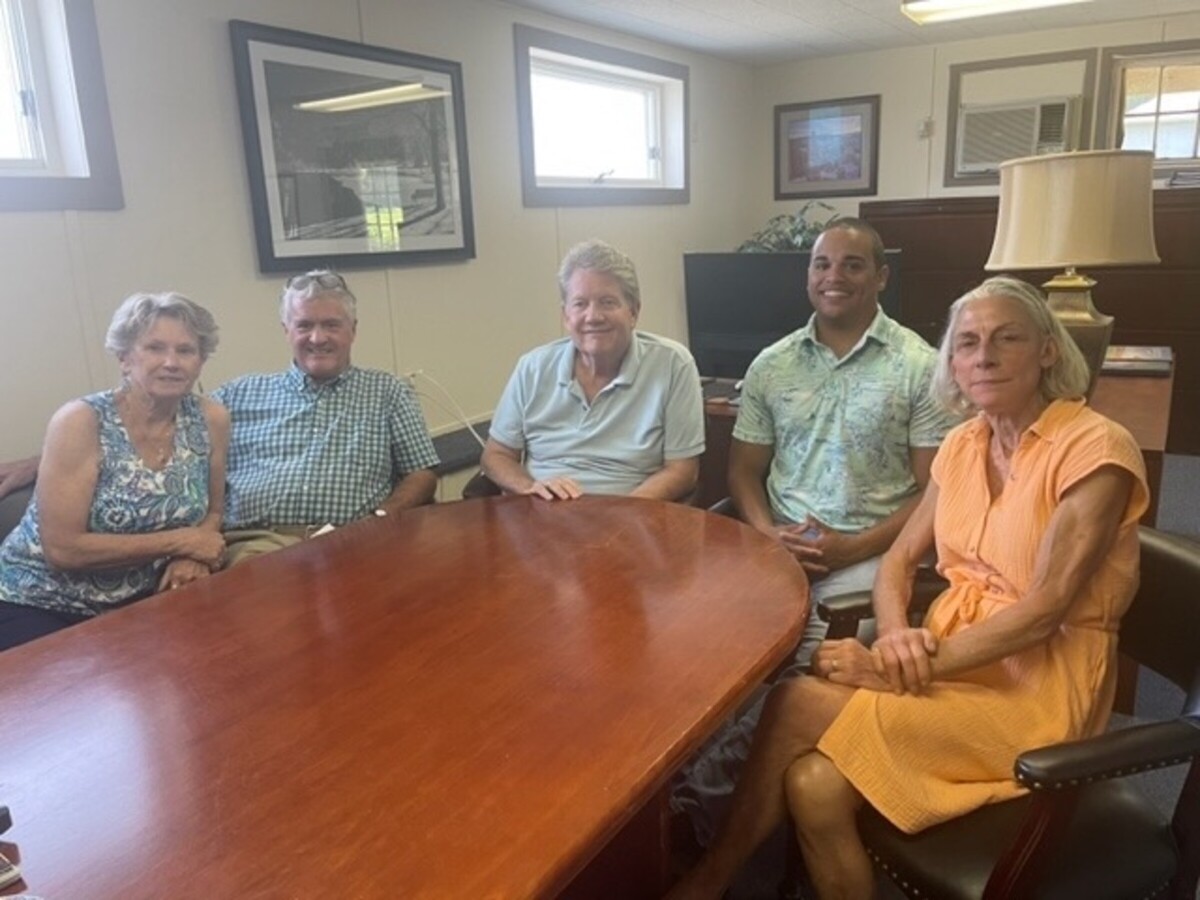

Left to right: Gina Edwards, accountant for Working Together; David Bradley, Jr., supporter; Ted Edwards, executive director; Isaac A., staff member; Gretchen Lea, community volunteer and philanthropist
by Jane Stahl
FYI: If “Working Together” is able to raise $30,000 by August 31, 2023, Gretchen Lea is offering a matching gift. The project currently stands just $9,000 short of their goal. To donate or discuss funding, contact Ted www.workingtogether.work.
Meet Isaac. Isaac was born in North Carolina, left at the hospital by his crack-addicted mother, a prostitute, on the day he was born.

He was released to his grandmother who abused him--tied him up at times--until he was four years old when his aunt took him; and, for the next eight years, endured physical, mental and sexual abuse in her care. He recalls being five-years-old and having marijuana smoke blown in his face-to give him a taste of “the life.”
At 12 he entered the foster care system but “had troubles” there. Over the years, he was placed in eight different situations until he turned 18. Meanwhile, the physical, mental and sexual abuse steered him into the path of addiction.
Upon release from the foster system, he re-connected with his mother and the two of them shared a room. She prostituted, and then it was his turn. “That's all I knew,” he admits. “It was my path. Prostituting, smoking crack.”
He ended up in prison, in county jail, and learned about “social,” social programs that offered rehabilitation. He had someone write an application letter to “social” and was accepted.
“It changed my life,” he shares, “but after two years there, I knew I wasn’t quite ready to leave, so I stayed an extra year. I’d seen too many people enter the program just to dodge [prison] time, leave after two years, relapse, and die.
“I made a commitment to myself to get clean and to help others by sharing my story. And so, after my extra year, it was time for me to spread my wings, use the skills I’d learned in ‘social.’ I came to Pennsylvania to join Working Together.”
*************
Isaac’s story is, unfortunately, not uncommon. There are too many like him in this country. Homeless. Drug-addicted. Physically, mentally, and sexually abused.
Fortunately, there are men like Ted Edwards. Ted has purchased the 120-acre former Fellowship Farm* with a mission to provide a safe place for men and women like Isaac. Sixty-five residential students are expected by December 2023.
Ted’s introduction to adults like Isaac began when he was cooking a meal for the homeless at church. Following a message he delivered to those who attended—members of street gangs, hookers, and ex-convicts—he was shocked to hear their stories--and then, encouraged--to visit the Delancey Street Foundation.
During his three-day visit, he became aware that the “homeless” had numerous issues, many stemming from physical and sexual assault. They had no hobbies, no structure or purpose. And by 13 years old, the drugs and alcohol that had begun as a solution—as a way to self-medicate in their dysfunctional situation—became the problem instead. While they may have survived sexual assault as children, they often ended up in prison, mental institutions, homeless, or dead. From that visit—15 years ago—Ted went back to school, determined to find a way to help.
“When you begin to understand that childhood trauma is at the root of most all addictive behavior, recovery takes on a new dimension,” Ted explains.
He learned about three successful communities operating in The Therapeutic Community Model in which, unlike other rehabilitation models where two out of every three participants end up back in prison, after three years, 90% of the participants stayed sober, were productive members of their communities, and did not return to prison.
In addition to the positive outcomes for the participants, Ted found the model to be a self-sustaining program that provided life skills and job skills at no cost to the students or their families because the participants work in businesses run by the non-profit. Given the success of the model in each of the three communities, he decided to model his program after The Therapeutic Community Model.
Ted developed his vision, his mission, through his life experiences as a successful businessman, seminarian, a soon-to-be marriage and family therapist—and as a 35-year recovering addict himself.
He created Working Togther PA, Inc., a 501 (c)(3) non-profit organization that is further classified as a public charity, to provide a self-help community for adult individuals who have hit bottom and desire to turn their lives around by offering a “hand up, not a hand out.”
WT’s information booklet states, “The individuals served are those in need of structure, purpose, and emotional support so that they can recover and develop into self-sufficient, contributing members of society. An overwhelming majority of individuals will have experienced trauma from physical and/or sexual abuse as children. They will also be in recovery from drug and alcohol abuse. Many will have lived lives of generational poverty, and some will have experienced the vicious cycle of incarceration and homelessness.
“Once accepted to the program, there will be no cost to the student or their family. All of the costs of food, clothing, housing, psychotherapy, and medical and dental care are paid for by Working Together.”
The Working Together Model
All residents—WT refers to them as students—“will be required to make a minimum two-year commitment of residence,” a time period conducive to overcoming a “life conditioned with environmental prejudice and self-destructive behaviors” and one where they will learn at least two job skills and attain at least a high school GED to allow them to re-enter society financially and emotionally independent, able to correct destructive patterns, live in community and contribute to society at large.
Social Enterprises
All students will work full-time in one of WT’s social enterprises: Landscaping and Tree Service, Automotive Repair, or in a moving company enterprise.
In this aspect, WT was modeled on other successful organizations.
Moving Together: One, the Delancey Street Foundation out of San Francisco, promoted the “2 men and a truck” concept where they offered “three people on the truck and at least one of them will be a felon” for a cheaper rate than other moving companies and a heartfelt chance to “be part of the solution.” “The public responded,” notes Ted. The Delancey Street Foundation eventually built Delancey Street Movers into the largest moving company in northern California.
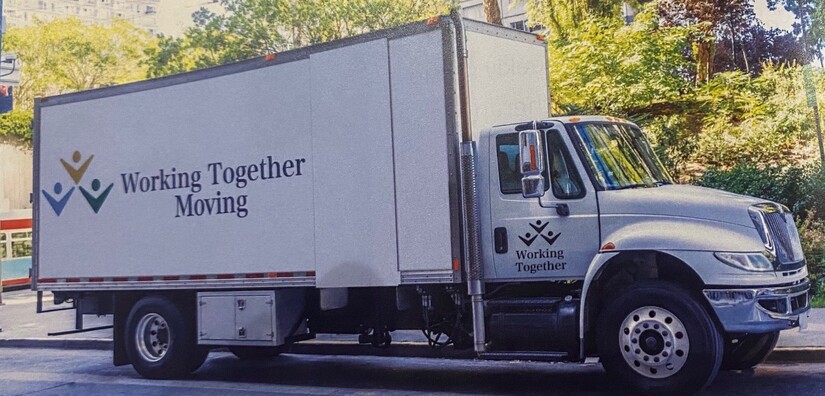
Landscaping and Tree Service
Reviewing landscaping service companies within the 25-mile Montgomery County area, WT did not find any organization offering the landscaping services and tree care being offered by WT’s enterprise including mowing and turf management; pruning and trimming shrubbery; spring clean-up and fall leaf removal; pruning, topping, and cutting down trees; and especially weeding. “No one promotes or wants to do the weeding,” Ted admits. Ted ran his own tree service business in an earlier career and can offer invaluable experience.
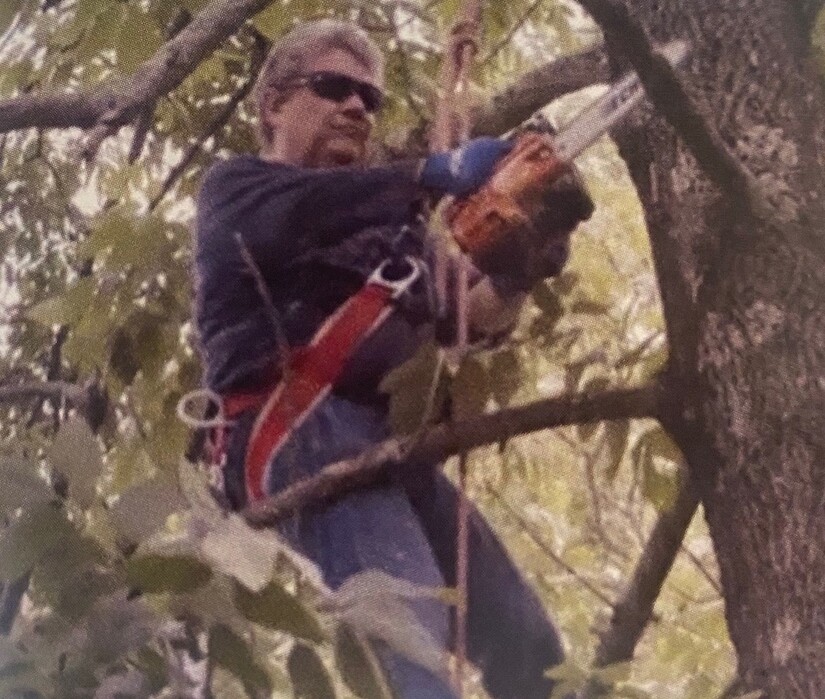
Automotive repair: WT acquired Ellis Automotive and retains Chu Rivera, the general manager of the Repair Shop. This enterprise will maintain the moving trucks and landscaping and tree service vehicles in addition to others from the general public who need automotive repair.
Gina Edwards, Ted’s wife, totally supportive of her husband’s vision coming to fruition, brings skills in money management and accounting practices to the organization including utilizing up-to-date technology.
Therapeutic Opportunities
Individual and group therapy, along with groups facilitated by trauma-informed licensed therapists, will be offering psychoeducation about depression, anxiety, physical and sexual abuse, gender identity, or recovery from addictions like gambling, sex, or eating disorders with particular emphasis on PTSD in order to better cope with troublesome memories. Students will have the opportunity to journey with others on a similar pathway and learn to share their burdens with others and develop positive strategies.
Ted’s brother Neil, a professor at Temple University, family therapist with experiences with youth at risk and in the corporate world facilitating team building, has designed the therapy program WT students will follow.
Ted’s own life experience—as a successful, high-functioning 33-year-old businessman while in active addiction followed by earning his seminary degree—brings an inclusive spirituality to the program—encouraging mindfulness and meditative practices, and welcomes, like AA, whatever religious practices that acknowledge a “higher power” that nurture mind, body, and spirit. WT is not billed as a Christian academy. All faiths are supported.
Life Skills and Relationships
Before graduating, all students will participate in life skills training in the areas of food shopping, preparing healthy meals, learning to live on a budget, and develop hobbies and healthy ways to have fun and exercise.
They will be exposed to a state-of-the-art Ropes Challenge Course to learn support and trust while challenging their perceived limitations. The Ropes Challenge Course includes 8 high elements and 11 low elements, a climbing tower, and a 500-foot zip line offering opportunities in team building and conflict management to youth groups, school students, non-profits and corporate clients as well as the WT students and staff.


The resident students will be encouraged to participate in community service and required to work an hour a week to maintain the grounds and buildings.
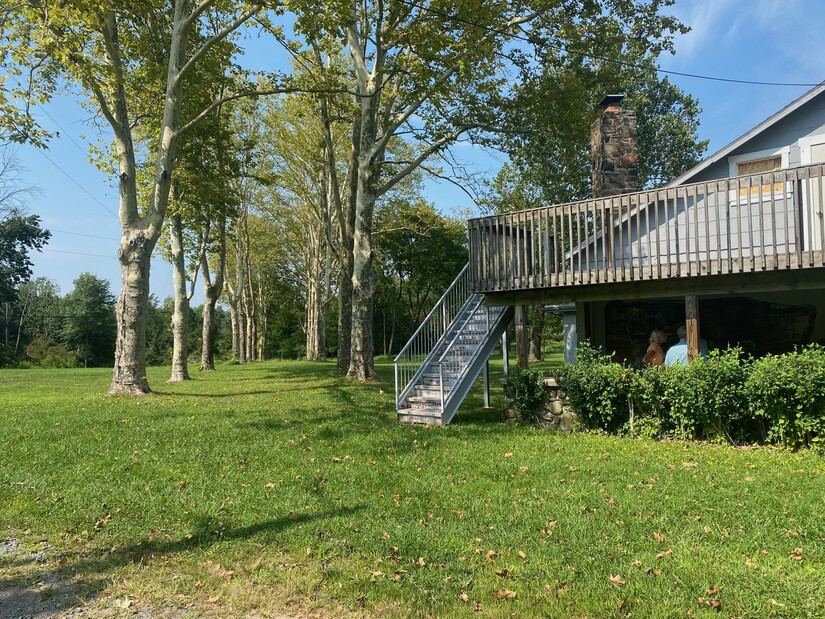

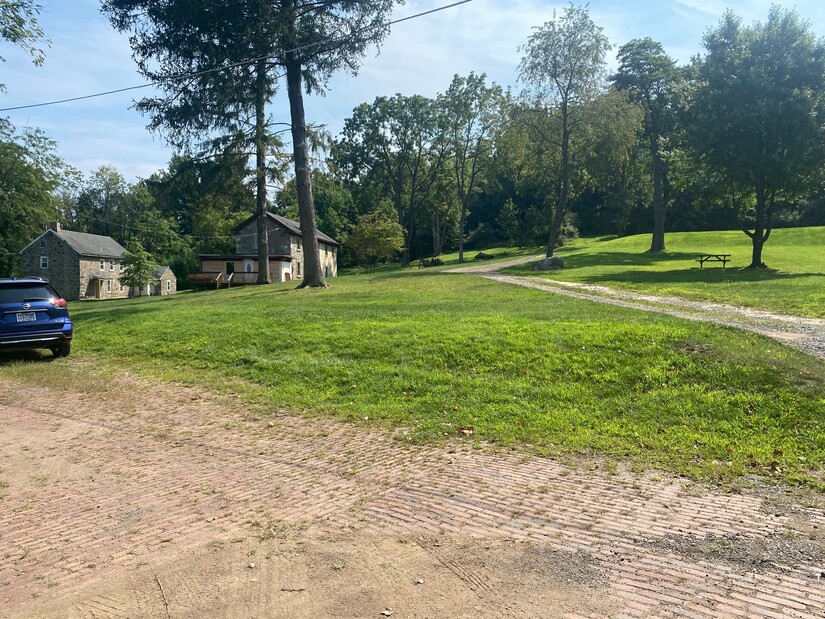

In leaving WT, students will move into a fully-furnished apartment with a full-time job and a stable support system in place. Funds for furnishing the apartment will be provided by WT.
Funding WT: WT will be self-sustainable through its social enterprises once it is underway. WT has raised ¾ of the working capital it needs to start the operation. Until breakeven through WT’s social enterprises, WT is looking to raise another $500K through gifts and grants.
“Once we’re up and rolling, we won’t need grant writers or fundraisers. We’ll be self-sustaining. Our students will be stakeholders in the project; they’ll set goals of growing the businesses; they’ll know what they’re doing—working to sustain ‘the House’ that is sustaining them,” Ted acknowledges. “Everybody is invested; there are tons of challenges.”
He continues, “I love that the program is therapeutic: as the students learn life skills and job skills, they’re on their way as more peaceful people, their traumas lessened, but I also love that it is self-sustaining.”
WT has a lot of work ahead of it, a seemingly overwhelming challenge as it proposes to serve this particular population. “There is nothing like this two-year residential program where 99% are in recovery,” notes Ted.
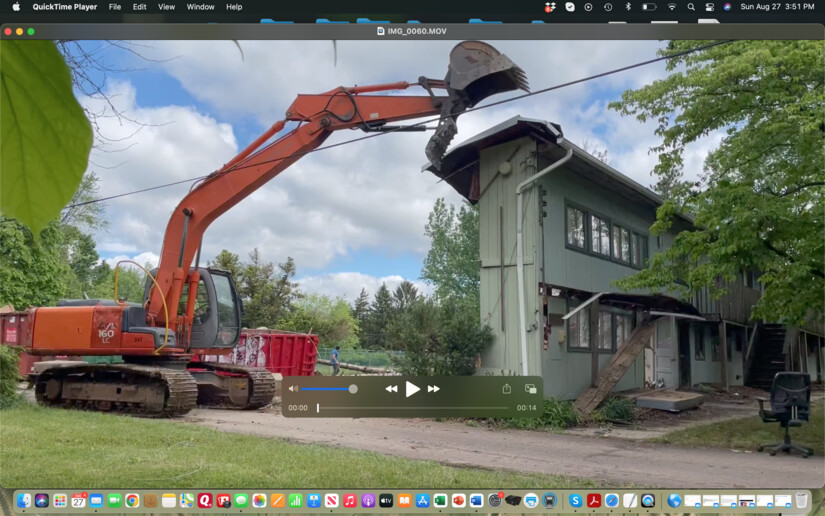
The WT property, as the site of the former well-known and well-regarded Fellowship Farm, has hosted numerous national and international conferences. WT will offer its renovated spaces and eventually a state-of-the-art Conference Center with a 300-person amphitheater style seating to other groups, along with a wide variety of offerings geared to corporate clients, the therapeutic community, non-profits and the public. Generating significant revenue and offering students an opportunity to attend the events it hosts, toward their education, is expected.
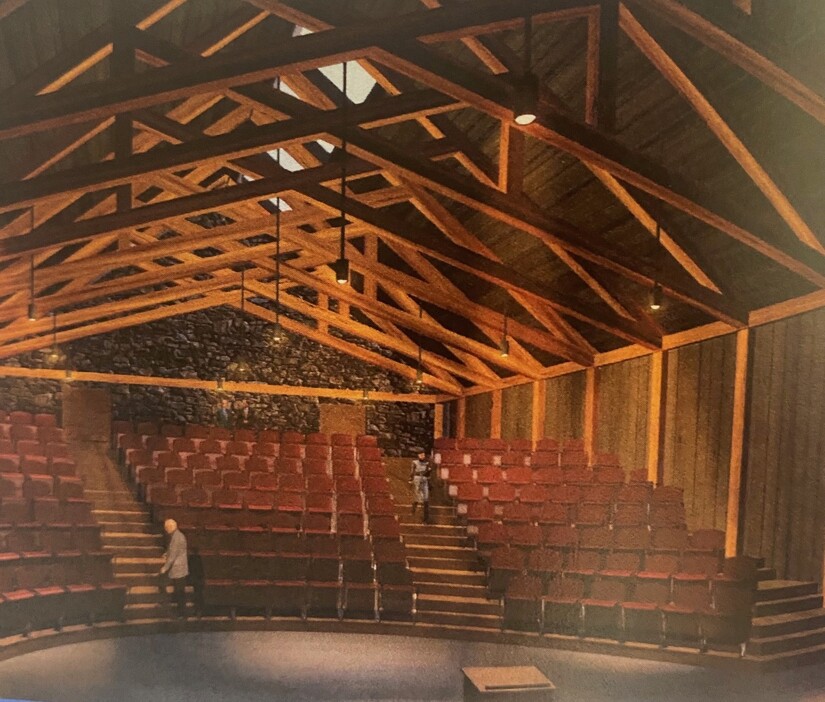
The word is getting around. Isaac will return to the county prison where he was incarcerated to interview those, like him, who want to apply to join WT. Ted and Isaac have scheduled interviews of potential students. Local rehabilitation venues are ready to send some of their residents.
The project enjoys local community support. Margaret Harner, local historian, community volunteer, and retired Boyertown Area School District history teacher, offers, “‘Working Together’ is an essential project in a town where too often local organizations tend to ignore the common good of the community, pitting their own interests against the others. ‘Working Together’ encourages all of us to help create Boyertown as a united, thriving home to be proud of.”
Gretchen Lea, former Fellowship Farm Board member, community volunteer, and generous supporter, is eager for the public to embrace and support the project. “Fellowship Farm was a wonderful endeavor, and I totally believe in the ‘Working Together’ project. At this point, I guess, I’m willing to put my money where my mouth is—at least some of it! Once the project is up and running, it should be fine. I sincerely want to do something for folks who did not have the advantages many of us have had.”
Jake Lea adds, "So often those that have had trouble in their past are rejected, ignored, or simply swept under the table. 'Working Together' embraces those that are less fortunate, teaches them life skills and trade skills, and provides them with a new beginning to a productive future both financially and emotionally. This project is a worthy cause that the community should support."
Meanwhile, Ted invites the community to visit the project site at any time and to visit the website to learn more: Workingtogether.work.

Today, Gretchen Lea is offering a matching gift if WT is able to raise $30,000 by August 31, 2023. The projects currently stands just $9,000 short of that goal.
On September 1, 2023, a “B Inspired”episode will drop and feature a conversation with Isaac, Ted, Gina, David, and Gretchen. Find “B Inspired” on your favorite platform like Anchor FM, Spotify, Google, Castbox, Breaker, Overcast, Pocket Casts, and RadioPublic. Apple.
*Fellowship Farm
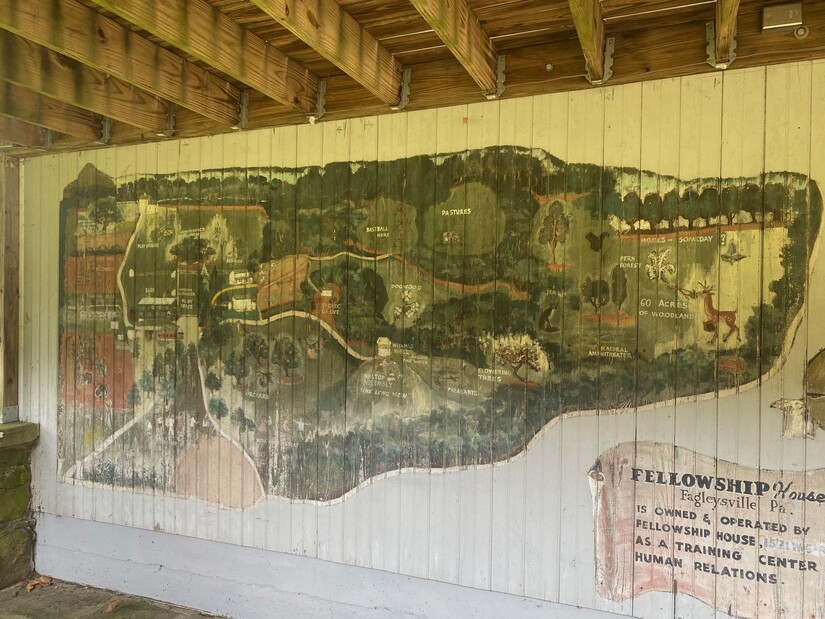
Information taken from an article by JIM LEWIS | PUBLISHED in the Reading Eagle: July 26, 2016 | UPDATED: August 19, 2021.
Fellowship Farm, a Montgomery County chicken farm-turned-retreat championed diversity during the civil rights movement, and whose backers introduced Dr. Martin Luther King Jr. to Gandhi’s philosophy of nonviolent resistance.

Fellowship Farm began in 1931 as the Young People’s Interracial Fellowship of Philadelphia, a community center in the city that opened art, religion and other programs to people of all races and religions. In 1951, its board members sold their homes to purchase the chicken farm in New Hanover, turning it into a retreat that advocated diversity and understanding. The retreat hosted a variety of social programs since, including trust-building exercises for corporate staffs, conflict resolution for schoolchildren and support for autistic kids and their families.During the civil rights movement of the 1950s and 1960s, its staff traveled to the South to participate in civil rights efforts, according to Child Guidance Resources Centers’ website. In 1950, about a year before the chicken farm was purchased, King visited the community center, then called Fellowship House, to attend a speech on Mahatma Gandhi that was given by Dr. Moredcai Johnson, president of Howard University. King, who was studying at a Chester County seminary, was so moved by the speech that he bought a half-dozen books about Gandhi’s philosophy on nonviolent resistance, according to The Martin Luther King Jr. Center for Nonviolent Social Change, an Atlanta human rights advocacy organization founded by King’s widow, Coretta Scott King. Fellowship Farm sponsored two trips by King to Philadelphia, including a visit in 1965 in which he joined a protest at Girard College against the one-time boarding school’s refusal to admit black children, according to The King Center.